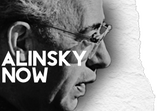WHAT NOW?
BY TIM MCCLUSKEY
The results of the Presidential election has left many stunned, depressed, and with a sense of deep anxiety. President-elect Trump will in the short term fundamentally change the entire American and mostly likely the world landscape. His election also may not only threaten the very existence of unions, including the NEA but most likely change our work and the work of the affiliates. Instinctively NEA will issue a call to arms. Hopefully it will embrace both a defensive and an offensive. It is my belief that a deeper and more strategic response is also in order if his election is not to result in long-term threats to our country.
Some of my very personal and random observations (obviously not all that follows is objective but some is) follow in no particular order.
Some of my very personal and random observations (obviously not all that follows is objective but some is) follow in no particular order.
|
Neither defeat nor victory is assured. I began re-reading John Steinbeck’s East of Eden just prior to the election. Once again I was struck of the conversation between Samuel, Lee, and Adam regarding the parable of Cain and Abel. Lee’s reflection is not that humankind is ordered to triumph over evil, nor is it promised to over come evil. It only ‘mayest’ – Hebrew timshel – meaning the outcome is thrown back to humankind to decide. (Sorry, I cannot take the theology out of me. It is my foundation – does not need to be others foundation.)
It may be that Trump has given us a gift – a scary one – but a gift nonetheless. Can we create the space to have the dialogue to take advantage of this gift? Can the NEA deal with the short-term threats at the same time embrace the long-term opportunities? Is it possible to do this outside of the management\labor structure, at least initially? What we should be doing will determine how we do it?
It may be that Trump has given us a gift – a scary one – but a gift nonetheless. Can we create the space to have the dialogue to take advantage of this gift? Can the NEA deal with the short-term threats at the same time embrace the long-term opportunities? Is it possible to do this outside of the management\labor structure, at least initially? What we should be doing will determine how we do it?


